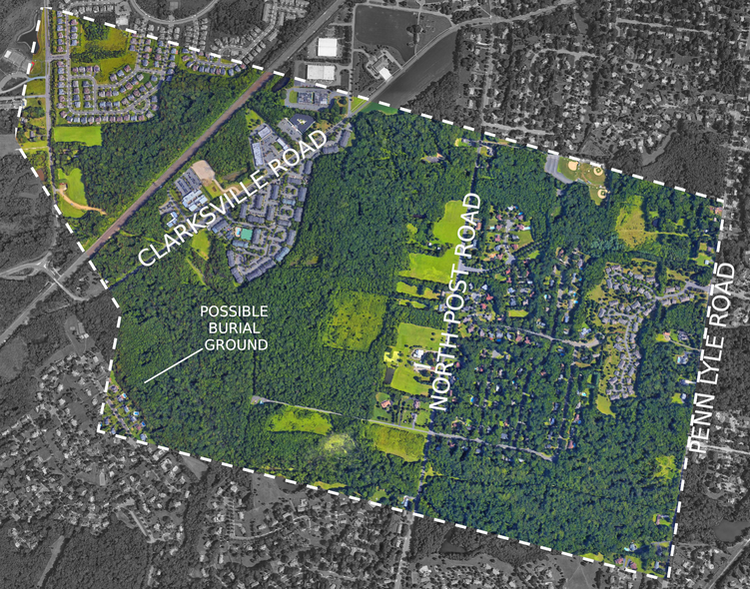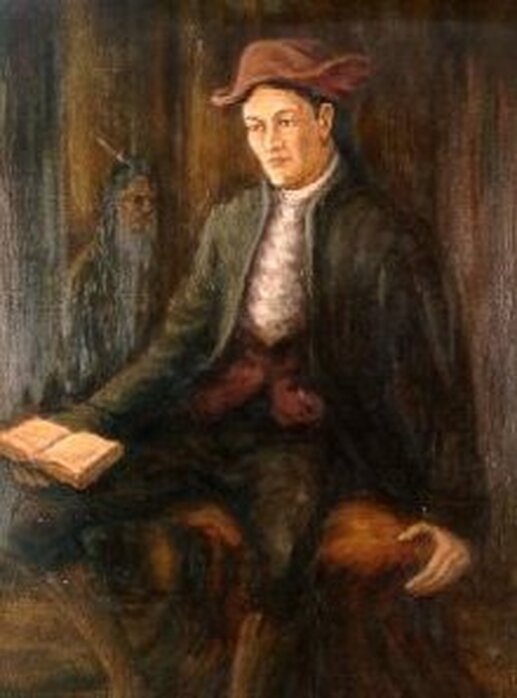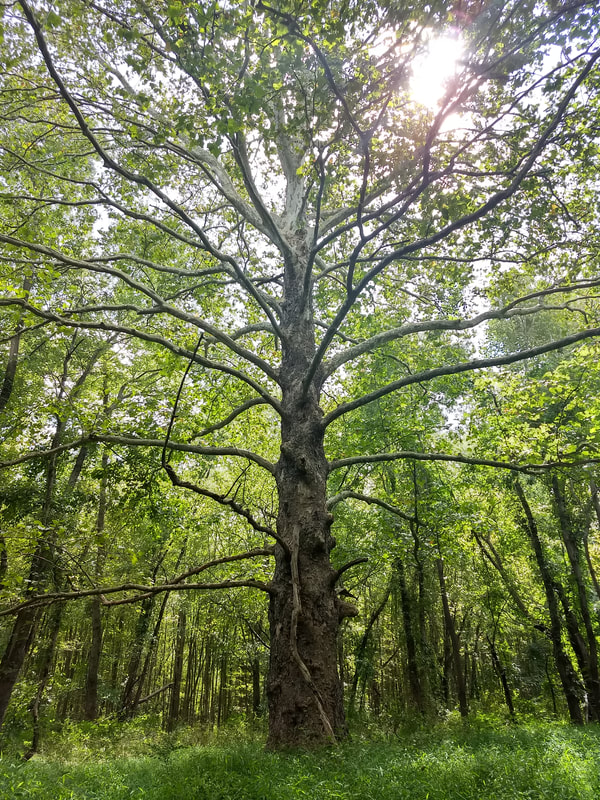Moses Tunda Tatamy
A Lenape Leader and West Windsor Icon.
Note: this entire page has only one citation - Richard Wailing's "Locating a Lenape Landscape."
Note: this entire page has only one citation - Richard Wailing's "Locating a Lenape Landscape."
Tatamy the Lenape
|
Moses Tunda Tatamy was an instrumental figure in the history of central New Jersey. Born in the 1690s in central New Jersey, he was a member of the indigenous "Leni Lenape" society and served as a diplomat and interpreter, serving a critical role in the French and Indian War by bridging the divide between New World and Old World cultures. His legacy in West Windsor remains in the naming of "Tatamy's Swamp," located around Clarksville, North Post, and Penn-Lyle Road. This was a large wetland he likely owned and possibly lived in prior to 1738.
In 1727, Tatamy witnessed the unlawful execution of his tribe's leader, named Weequehela. Fearing for his friends and family in a time of tenuous peace, Tatamy aimed to appease the European aggressors. Although it is not known how exactly Tatamy grew to be a leader of his people, it is well-established that by the 1730s, he was well-known and trusted in the colonial world. On December 30, 1736, he was granted 315 acres of land by the Colony of Pennsylvania near the Native American village of Welagemeka, located just north of Bethlehem, Pennsylvania. This grant was made by Thomas, Richard, and John Penn - sons of their much more famous father, William - in consideration of their "love and affection for Tatamy." The Lenni Lenape was to later host Moravian leader Zinzendorf on his property in 1742. |
Tatamy the Christian
|
In 1745, Tatamy converted to Christianity, to further leverage his role as a diplomat and peacemaker. This was accomplished with the help of the famed missionary David Brainerd (1718-1747), who took notes on the event and grew to consider Tatamy a leader of his people. He even saw Tatamy as analogous to Moses - destined to lead his people towards Christianity. Below is an excerpt from Brainerd's writings, where he describes his counterpart:
" Lord's day; July 21"..."It may perhaps be satisfactory and agreeable that I should give some brief relation of the man's exercise and experience since he has been with me, especially seeing he acts as my Interpreter to others"..." His conversation and deportment were much altered, and even the careless world could not but admire what had befallen him, to make so great a change in his temper and behaviour. Especially there was a surprising alteration in his public performances. He now addressed the Indians with admirable fervency, and scarcely knew when to leave off. Sometimes when I had concluded my discourse, and was returning homeward, he would tarry behind to repeat and inculcate what had been spoken. His change is abiding, and his life, so far as I know, unblemished to this day, thought it in now more than six months since he experienced this change. During this time he has been as much exposed to strong drink as possible, in divers places where it has been moving free as water; and yet he has never that I know of discovered and hankering desire after it. He seems to have a considerable degree of spiritual exercise, and discourses feelingly of the conflicts and consolations of a real Christian. His heart echoes to the humbling doctrines of grace, and he never appears better pleased than when he hears of the absolute sovereignty of God, and the salvation of sinners in a way of mere free grace. He has likewise of late had more satisfaction respecting his own state, has been much enlivened and assisted in his work, and has been a great comfort to me. Upon a strict observation of his serious and savoury conversation, his Christian temper, and unblemished behaviour for so considerable a time, as well as his experience which I have mentioned, I think there is reason to hope that he is "created anew in Christ Jesus to good works. His name is Moses Tinda Tautamy. His is about fifty years of age, is pretty well acquainted with the Pagan notions and customs of his countrymen, and therefore the better able now to expose them. I am persuaded he has already been, and will yet be, a blessing to the other Indians." |
Tatamy the Peacemaker
|
Throughout his life, Moses Tatamy traveled across the mid-Atlantic on numerous diplomatic missions. He experienced tragedy along the way, as two of his sons - William and Peter - died trying to take after their father's sense of civic duty. The first was shot on August 9, 1757 by a young Pennsylvania boy who had been raised to fear the natives; the second died of disease in 1753 while attending Princeton College. Even Tatamy's third son, Nicholas, who served with the New Jersey Provincials, was captured at the fall of Fort William Henry on the same day that William died. However, Moses Tunda Tatamy pushed on. By 1758, he served as an agent for the rest of the Lenni Lenape in settling every land dispute in New Jersey.
Two years later, Tatamy died at Edmund Bainbridge's estate on the Upper Road west of Princeton, during an era of relative peace. His legacy lives on in the naming of the borough of Tatamy, Pennsylvania, and in Tatamy's Swamp in West Windsor, New Jersey. |
Bibliography:
- Walling, Richard S. Rep. Locating a Lenape Landscape: Tatamy’s Swamp. Edison, New Jersey: Communipaw Consulting, 2012.





